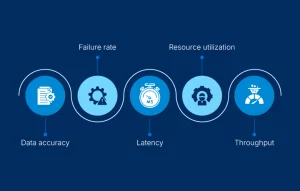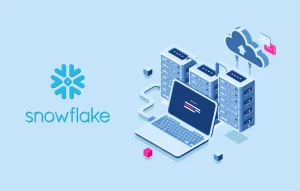Your data is your most valuable asset. But what happens if it’s lost, stolen, or breached? The consequences could be devastating. A data breach can damage your reputation, impact customer trust and lead to financial losses. It can also expose sensitive information, such as customer data, trade secrets and intellectual property. In some cases, data breaches can even lead to regulatory fines and legal action.
The global average cost of a data breach in 2023 was USD 4.45 million, a 15% increase over 3 years. – IBM
It is alarming to see that the cost of data breaches continues to rise. This is a clear indication that organizations need to invest more in data security.
The increasing cost and frequency of data breaches is a serious concern for organizations of all sizes. By implementing effective data management and security practices, organizations can reduce their risk of a data breach and mitigate the impact of one if it does occur.
In this blog, we will cover the importance of efficient data management solutions and ways to improve data security.
4 reasons why data management integration is important
1. Security
Data privacy is the top concern of modern businesses. Data management practices such as data encryption and data access controls help protect data from unauthorized individuals. This is important for complying with data privacy regulations and protecting the organization from cyberattacks.
2. Efficiency and accuracy
Organizations that can effectively manage their data are better positioned to succeed. Data governance, data quality control, and data backup and recovery ensure that data is accurate, complete and reliable. This is essential for making informed decisions and ensuring the smooth operation of business processes.
3. Unlock the full potential of your data
Data management practices such as data organization and data cataloging can help users find and access the data they need quickly and easily. By implementing effective data management solutions, organizations can turn their raw data into actionable insights. This can help them improve their decision-making, increase efficiency, and reduce risk.
4. Improved decision making
Businesses that cannot effectively manage their data are at a significant competitive disadvantage. Data management practices can help organizations collect, analyze and visualize data to make better decisions. This can lead to improved business performance and a competitive advantage.
How data platform as a cloud service (DPaaS) ensures efficient data management?
DPaaS ensures efficient data management by providing a centralized, scalable, and secure platform for storing, managing, and analyzing data. DPaaS solutions typically offer a variety of features that can help organizations improve their data management efficiency, such as:
- Data integration: Integrate data from a variety of sources, including on-premises systems, cloud-based applications, and big data sources. This can help reduce the time and effort required to manage data silos and improve the overall quality of data.
- Data governance: Implement data governance policies and procedures to ensure that data is accurate, complete, and secure.
- Data analytics: DPaaS solutions typically offer a variety of data analytics tools and capabilities. This can help organizations extract valuable insights from their data and make better decisions.
- Scalability: DPaaS solutions are highly scalable, which means that they can easily adapt to changes in data volume and complexity. This can help organizations avoid the need to invest in new infrastructure and software as their data needs grow.
- Security: DPaaS solutions offer a variety of security features to protect data from unauthorized access. This includes features such as data encryption, access control, and auditing.
Snowflake data management is a leading data platform. It is a good choice for organizations of all sizes that are looking for a DPaaS solution that can help them improve their data management efficiency. It offers a wide range of features that can help organizations improve their data security.
How Snowflake ensures data protection?
Snowflake is a fully managed cloud-based data warehouse that offers a single, unified platform for data storage, processing, and analytics. It is highly scalable and secure. Moreover, it can be used to support a wide range of workloads, from simple data warehousing to complex machine learning and data science applications.
Snowflake security is based on a multi-layer approach that includes encryption, access control, auditing, and network isolation. Snowflake encrypts all data at rest and in transit using AES-256 encryption, and it allows organizations to implement granular access control policies to ensure that only authorized users can access their data. Snowflake also provides detailed auditing capabilities and network isolation to further protect data from unauthorized access.
Data management with Snowflake ensures data protection in several ways, including:
- Encryption: Snowflake automatically encrypts all data at rest and in transit using industry-standard algorithms and protocols. Snowflake manages encryption keys securely and rotates them regularly.
- Authentication: Snowflake supports two-factor authentication, multi-factor authentication (MFA), and single sign-on (SSO).
- Data import and export: It encrypts data import and export on the client side.
- Data transfer and storage: Snowflake secures data transfer and storage.
- Access control: It uses role-based access control for database objects.
- Time Travel: It is a Continuous Data Protection (CDP) feature that allows users to access historical data at any point in time. This feature can be used to recover deleted or corrupted data.
- Fail-safe: It is a data protection feature that allows Snowflake to recover historical data after the Time Travel retention period ends. Fail-safe provides a non-configurable 7-day period for historical data storage. The period begins immediately after the Time Travel retention period ends.
Suggested: How Snowflake data integration and modeling boost marketing outcomes
Components of Snowflake data security
Database storage
Snowflake’s database storage is based on a distributed file system that is stored in the cloud. This allows Snowflake to scale horizontally, which means that it can easily add more storage resources as needed. Snowflake also uses a columnar storage format, which improves performance for data-intensive workloads. It ensures database security with:
- Encryption
- Access control
- Auditing
Query processing
Snowflake’s query processing is based on a massively parallel processing (MPP) architecture. This means that Snowflake can distribute queries across multiple compute nodes, which improves performance for complex queries. Snowflake also uses a variety of techniques to optimize query execution, such as query caching and materialized views. Ensure security with:
- Sandboxing
- Query filtering
- Query caching
Cloud services
Snowflake is built on top of a variety of cloud services, including Amazon Web Services (AWS), Microsoft Azure, and Google Cloud Platform (GCP). This allows Snowflake to take advantage of the latest cloud infrastructure and security features. Enhance cloud security by adhering to:
- Physical security
- Network security
- Security protocols
How Snowflake architecture helps with data security
- Separation of storage and compute: Snowflake separates storage and compute, which makes it more difficult for attackers to access data.
- Distributed file system: Snowflake’s distributed file system makes it more difficult for attackers to steal data.
- Columnar storage format: Snowflake’s columnar storage format makes it more difficult for attackers to read data. This, in turn, would make it difficult for them to make sense of the data.
- MPP architecture: Snowflake’s MPP architecture makes it more difficult for attackers to disrupt data processing.
- Cloud services: Snowflake is built on top of a variety of cloud services, which offer several security features, such as data encryption and access control.
How to efficiently connect to Snowflake for better data security and management?
Here are some best practices for connecting to Snowflake:
- Snowflake web interface: The Snowflake web interface is a graphical user interface that allows users to connect to Snowflake and manage their data.
- Snowflake command-line interface (CLI): The Snowflake CLI is a command-line tool that allows users to connect to Snowflake and perform a variety of tasks, such as running queries, loading data, and managing users.
- Snowflake SQL clients: Snowflake provides a variety of SQL clients that allow users to connect to Snowflake and run SQL queries. These clients include SnowflakeDB for Visual Studio Code, SnowflakeDB for IntelliJ IDEA, and SnowflakeDB for Eclipse.
- Third-party tools and technologies: Snowflake also supports a variety of third-party tools and technologies, such as data visualization tools, business intelligence tools, and machine learning tools. These tools and technologies can be used to connect to Snowflake and access data.
How can Softweb Solutions help with Snowflake implementation?
Softweb Solutions is a Snowflake partner that can help you in several ways, including:
- Snowflake consulting: We assess your Snowflake needs and develop a Snowflake strategy.
- Snowflake implementation: We help you implement Snowflake solutions and migrate your data to Snowflake.
- Snowflake managed services: We efficiently manage your Snowflake environments. This can include services such as data loading, performance tuning, and security monitoring.
- Snowflake custom development: Softweb Solutions can help you develop custom Snowflake solutions, such as data pipelines, ETL processes and data warehouses.
Transform your business with Snowflake implementation services
When you’re dealing with sensitive data, you need to be able to trust your data warehouse. Snowflake is a cloud-based data warehouse that’s designed to give you peace of mind knowing that your data is safe and secure.
Softweb Solutions is a Snowflake partner that can help you implement Snowflake solutions. Contact us to know more about how we can collaborate to enhance your data management and security.









